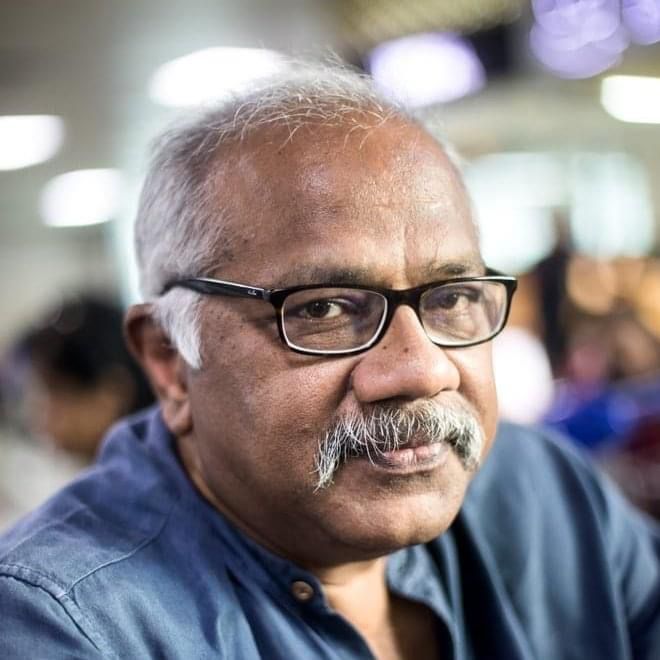Saanjha: Stories & blogs
Recent blog posts
Exciting update!

Equity in Sports

Sport is a microcosm of society and, at the same time, a catalyst to usher in social change. There can be no argument that, in the past two decades, it has played no mean role in encouraging more sets of parents of girl children in India to be open to the idea of letting them play sport of their choice. They have seen sport as a ladder that helps them climb the socio-economic ladder.
With many elements dividing society, sport has the power to make its participants accept different people, overcome prejudice and understand and accept that all people are equal. Its intrinsic sense of fair play, equality and inclusion can bring people together, just as we saw in the Asian Games and the ICC Cricket World Cup in the past three months.
Yet, the refrain we hear is that equity in sport is a pipedream. There is a need to take arm-chair critics with a pinch of salt. For long, they have peddled a narrative that suits their image of India. The converse is also true – arm-chair cheer leaders offer their own all-is-rosy argument and need to be taken with some scepticism as well. For, the truth may lie somewhere in between.
The Government of India’s flagship Khelo India Scheme, while being gender-neutral and affording equal opportunities for women too to take part in sports, has a special Sports for Women component to offer greater encouragement for women to take up sport and compete at all levels, national and international.
The Board of Control for Cricket in India first introduced pay-parity for women’s cricket and then backed it up by instituting the Women’s IPL. National Sports Federations governing Archery, Weightlifting and Swimming, to name but three, have already initiated competitive leagues across the country to encourage greater women’s participation in sport.
Indeed, India is on the cusp of moving from potential to performance. While it remains on that journey that, it must prioritise equity in this sector. There is a general sense that the universal confusion between equity and equality applies to India as well. The demand for equal opportunities for girls and women to play sport remains unaddressed in many parts of the country.
You can contribute to the evolution of Indian sport as one that has equity as its epicentre, first by studying the ecosystem to understand it rather than be influenced by one school of sociological thought or the other, and then by taking the necessary steps to ensure that equity is never pushed to the penumbra or confused with equality.
There is a dire need to appreciate the fact that equity does not begin and end with gender-parity. There are several other aspects of sport that need attention in India before we come to the conclusion that equity has been achieved. For instance, the need to make sports facilities available to children around the country is a responsibility of all civic bodies.
For a number of years now, Government has earmarked budgets for promotion of sport in Jammu & Kashmir as well as the North-East. The results in competitive sport have started trickling in and may take some more time before more athletes from these regions and in more disciplines begin to make it to the international level.
Yet, if India is to realise its dream of making a splash on the Olympic Games, it needs to invest a lot more time and energy in making the concept of sport-for-all a reality. It is only when the base is broader than now that India will get a thicker and wider creamy layer to draw from. Aiming for and achieving equity – giving everyone an opportunity to achieve – is one way of getting there.
Equality vs Equity vs Liberation!

When we talk about inequality often more than not we only think about gender inequality. In India, nation that reveres cricket as a religion, the journey of sports beyond the boundary lines has been a tale of inequality and untapped potential.
The disparities plaguing our sports scene apart from Gender inequality:
1) Regional Disparities: 🗺️🏞
2) Financial Barriers: 💰💸
3) Caste & Religion Discrimination: 🤝🚫- This issue becomes even more glaring when potential donors hesitate to contribute because athletes hail from regions like Jammu & Kashmir or belong to different religious backgrounds. Such discrimination stands as a stark reminder of the need to transcend divisions in our pursuit of equality in sports
4)Access to Coaching and Training: 🏋️♂️🏊♀
5) Disabilities in Sports: 🦽🏀
6) Lack of media coverage/ PR: 📢📺
Saanjha is working with athletes in vulnerable territories & from economically disadvantaged backgrounds, aiming to bridge these gaps and pave the way for a more inclusive and equitable sports landscape.
We will love your help in the following ways-
1) We are looking for sports nutritionists who are ready to do some pro bono work and guide our athletes
2) Connect us to media/PR who will write about these athletes and make them "seen"
3) Funding is always great and you can do so through our crowd-sourcing website (www.saanjha.org)






